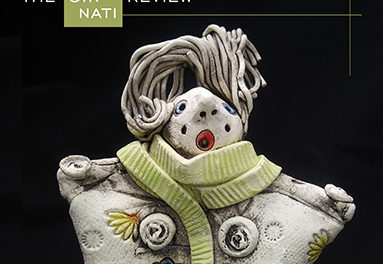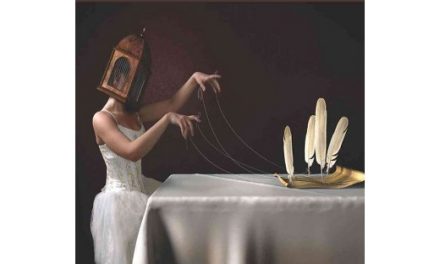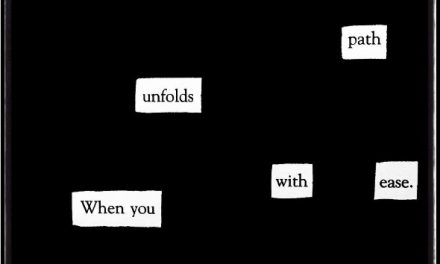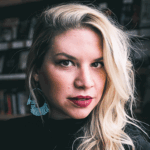The Cincinnati Review is delighted that our contributor Jane Springer is one of the winners of this year’s Whiting Awards. Her first book, Dear Blackbird, won the Agha Shahid Ali Prize and was published by the University of Utah Press. Jane’s other awards include the Robert Penn Warren Prize for Poetry, an AWP Intro Award, and an NEA Fellowship.
Whiting Awards of $50,000 each are given annually to writers of promise early in their careers. Here’s some of what the judges had to say about Jane’s work: “She makes splendid connections between the narrow world she knew as a child and the intimate rhythms she acquired as a poet. She is a poet full of verve and lyrical passion, a new and authentic American voice. There’s as much verbal energy in a single poem as many poets use in an entire book. She’s not afraid to get her hands dirty and play in the mud of Poetry Land.” We heartily concur.
Poetry Editor Don Bogen interviewed Jane early in December:
First, congratulations! The Whiting Award is wonderful news, and much deserved. Tell us about how you found out, and what the ceremony in New York was like.
Thank you. In late September, Whiting Foundation board members called to tell me the news. I called their number back the next day to make sure it was not a joke—several co-winners expressed to me, later, they’d had the same sense of awe and disbelief at hearing the announcement.
The ceremony was held at the Morgan Library, and Peter Matthiessen delivered the keynote speech (informative, witty, and delightfully odd). Each winner was lauded and received a book with a check enclosed (mine arrived in a volume of James Agee’s work), then we gathered upstairs for the reception. What was it like? First ride on a wooden roller coaster—nowhere to go but—
Did the judging committee consider just the work in your first book, Dear Blackbird, or was it a combination of that and more recent poems?
Whiting Awards are shrouded in secrecy—I don’t know who nominated me or what materials the panel of judges considered over the course of the year it took them to decide that I would be named a Whiting recipient. Maddening—not to be able to thank whoever it was who had a hand in the whole shocking and blissful mess.
Dear Blackbird was selected by J. D. McClatchy for the Agha Shahid Ali Prize and published by the University of Utah Press in 2007. Looking back, can you tell us a bit about your sense of that book and how the work in it might compare to what you’re doing now?
I view my work now as an extension of Dear Blackbird, which was, to my mind, a book- length pastoral elegy and love letter to the South. The major difference between that book and my new manuscript (Murder Ballad) is this: Murder Ballad concerns itself more with the decline of the oral tradition of storytelling than with the encroachment of “civilization” with regards to landscape. Both books seek to explore the shifting mythologies of the American South at the crossroads of language where narrative and lyric forms collide.
The poems you’ve published in The Cincinnati Review—“An Addict’s Guide to Pregnancy” in Winter 2007 and “Whiskey Pastoral” and “Murder Ballad” in Winter 2010—are striking for their range and overall energy. These are all poems of a good length—four pages in the case of “An Addict’s Guide”—with a powerful sense of voice behind them. How do you go about writing such dynamic stuff?
You are very kind to describe those poems as dynamic. Thank you. I try to tell stories worthy of retelling when I write. I guess I always have, in the back of my mind, Lorca’s thoughts on duende—how it arises from a kind of human urgency and life/death struggle that trumps meditative musings that demonstrate mastery of poetic technique so seamlessly as not to shed blood. I say I try because I fail far more often than I succeed—and I hope I get closer to writing with an authentic voice with each poem.
As the titles indicate, the subject matter in your poems is anything but tame. Where do your poems come from?
They often begin with trouble that I hope the poem will help me sort out (though not, necessarily, resolve). For example, “Murder Ballad” acknowledges the violence inherent in that form of music and asks: So why do we hate the thing we love? “Whiskey Pastoral” asks what the pastoral looks like in the 21st century (an age of environmental wreckage).
“Addict’s Guide?” When I was nursing my newborn (and hardly allowed to take half an aspirin), a friend of mine dropped a pile of mushrooms on my coffee table and asked: “I don’t suppose we could do these, considering?”
Do you remember what the birth of your first child was like? The joyous miracle/year-long adaptation to the yowler’s outrage at all forms of would-be sanity and sleep? I googled hallucinogens/breast milk exhaustively that night before conceding, reluctantly: “I suppose not.” The poem went where I could not possibly go in my new role as a responsible adult.
That’s another way of saying I tend to explore the boundaries of contradictory forces (both real and imagined) with genuine curiosity in the hope that this subversive act will produce the kind of tension/forward momentum that could justify writing 2-4 page poems (my preferred length). If Flannery O’Connor and Larry Levis had a kid . . . that’s what I’d like to read and what I aim to write.
You grew up in small towns in the South and earned your doctorate at Florida State. Do you consider yourself a Southern writer?
Dyed in the wool.
At Florida State you studied with another of our contributors, James Kimbrell, whose poem “How to Tie a Knot” is in our new issue. What was that like?
He showed me his first version of “How to Tie a Knot” in 2006. It’s gone through many permutations since then; regardless of what form it shows up in I consider it one of the most personally-influential-poems-extant. The voice there (as in all of his poems) is so compelling, rhythmic, authentic, surprising, and smart (and the questions asked in the poem are so deeply moving, pertinent, and unanswerable) that I wrote a whole cadre of inferior knot-poems after he showed it to me. I couldn’t/cannot still get the voice out of my head. I don’t think it is overstatement to say his poems are flat-out genius touchstone pieces that inspire me to try and write beyond my own capabilities.
When he sends me new poems now, I share them with students to hear them say: “Wow—you mean we can do that?” (Sure you can do that! Go read Archimedes, sit in a chair 5 hours a day for several days a week for several years writing and revising, then show me what you’ve got.) Does that answer your question? Its sort of like asking what was Keats (if Keats had a drawl and an uncle Skinchy) like as a teacher? Well—read the Odes.
You’ve been teaching at Hamilton College in upstate New York for a few years now. How do you like it?
What I ask from a college: a) writing faculty whose work I genuinely find exciting, b) students who work hard when given reason to do so, c) an administration that values the humanities beyond the concerns of the corporate profit margin (dying breed).
Hamilton College knocks all three out of the ballpark. As to the region: I live in the foothills of the Adirondacks in the snowbelt. Dark by 3 pm. The snow fell the day I arrived—2 ½ years later it hasn’t yet ceased. 11,782 feet last time I measured it. No wonder the highlight of fall is the annual snow plow parade. And honey-crisp apples. So sweet they would make Eve’s Paradise worth ditching.
Thanks very much for talking with us. One last one: Now that you’re rich and famous, will you still be sending us those terrific poems?
Aw. The most compelling writing always is in literary magazines, don’t you think? That’s where the greatest risks are taken—by writers who have not yet earned reputations they dread losing. The more success that meets a poet—the harder it is to write with a sense of abandon (Virginia Woolf said it best: The eyes of others our prisons; their thoughts our cages).
Considering the stack of form-rejections littering my desk right now, I’d say I’m un-famous enough to write with the fervor afforded by anonymity. I’m humbled you’d consider my work at all and will send you some soon—thanks so much for requesting it.










